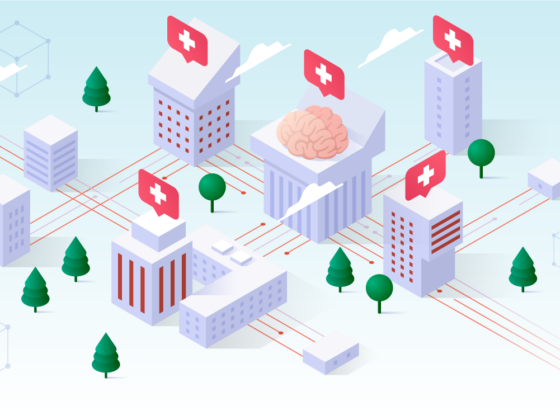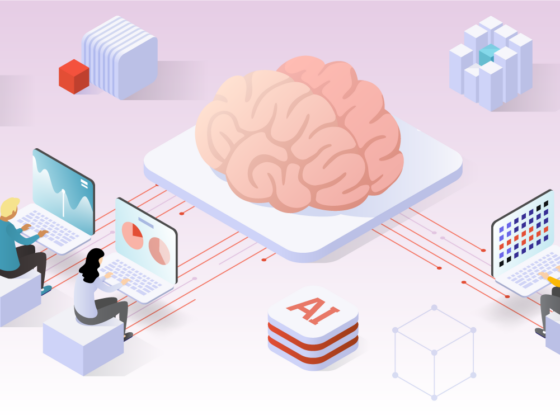by Carl Bunche
Introduction
The ever-evolving domain of artificial intelligence (AI) promises to revolutionize the healthcare, business, and governance sectors. To guarantee that past inequities do not persist into the future, we must ensure that AI’s advantages are accessible to all.
Becoming more inclusive presents a significant challenge in overcoming AI’s tendency to exhibit biases. This issue has led to discriminatory outcomes, such as job-hiring algorithms that unfairly overlook women and facial recognition systems that misidentify people from different racial backgrounds. In a proposed memorandum, the Executive Office of the President has taken steps to infuse ethical standards into government AI practices, recognizing the need for a collective effort that spans the public and private sectors.
As we delve into the “how” of making AI systems fair, we must also consider the “why.” AI is a technical endeavor as well as a moral and ethical one. It is equally imperative to begin with a basic understanding of our data’s origins and the practices used in its collection. More than a procedural necessity, this step sets the foundation of conscious AI development.
The following points will explore critical aspects of this journey, starting from integrating diversified data in training AI systems to the necessary role of human oversight and the collective responsibility we share in ethically shaping AI. These items are not standalone solutions but rather interconnected pieces of an approach to proper AI development for the benefit of society.
- Diversify data for fair AI systems
Building fair AI systems requires diverse data representing genders, races, ages, and socio-demographic factors. This diversity is crucial for training the AI to understand a wide range of scenarios, thus reducing the risk of biased outcomes. Utilizing augmentation techniques with diverse communities is one way to achieve this effectively. These methods allow us to create additional training samples from existing training data. By actively working with organizations from underrepresented groups and employing data augmentation methods, AI developers can ensure that the data used in AI training reflects different populations’ needs and concerns. Diversifying data is a foundational step in developing equitable AI solutions. - Mitigate bias in your algorithms
Once diverse data is secured, the focus shifts to the algorithms themselves. Algorithm design must consciously incorporate techniques to mitigate bias. Employing techniques, such as adversarial debiasing, helps AI recognize and minimize its biases by introducing countermeasures into the training process. Additionally, algorithms can create bias-free synthetic datasets to present a more balanced view of underrepresented groups in training sets, reducing bias. Mitigating biases in algorithms requires proactive strategies, diverse perspectives, and continuous updates to make a technically efficient AI system ethically sound and fair. - Audit AI systems regularly
Building a fair AI system requires regular and thorough auditing, which is essential to adapting developmental processes to the changing nature of societal values. These audits should review ethical standards and compliance with evolving regulations. Building a fair AI system requires regular and thorough auditing, essential to adapting developmental processes to the changing nature of societal values. These audits should review ethical standards and compliance with evolving regulations. Establish a routine schedule for a bias audit and incorporate internal evaluation criteria and external reviews by independent experts. This approach will identify and mitigate biases and enhance transparency and trust in the AI system. - Maintain human oversight and transparent reporting
Human oversight is vital in ensuring AI decisions are fair. Even with advanced algorithms, human judgment and intervention are critical because the AI’s decisions may affect technical assessments and consultations with diverse groups. “Human-In-The-Loop” (HITL) and “Society-In-The-Loop” (SITL) are two practices that can help achieve this. Conceptually, these practices focus on embedding the AI system with checks that require human review and decision-making before proceeding. This step ensures that ethical considerations are applied. Continuous human oversight of AI systems is crucial for assessing fairness and confirming the comprehension of context. Transparent reporting of these audits helps build trust and holds AI developers accountable. - Share collective responsibility
The responsibility of ethical AI (or any solution) is too heavy to be carried by individuals or single organizations. It requires a collectively shared responsibility to recognize that the development and deployment of AI solutions impact society.
Ethical AI begins with individuals (i.e., developers, product owners, UX designers, scrum masters) who must integrate ethical considerations into their work. On the other hand, organizations must foster cultures where ethical AI (and ethics in general) are prioritized by providing training and resources to support responsible AI development.
Corporate Digital Responsibility (CDR) is a voluntary commitment by organizations to include all stakeholders in decision-making. This framework can help navigate the complexity of AI governance by using collaborative guidance to address societal impacts within the digital community. This integration of ethics should be evident in every aspect of AI work, from early design sessions to production launches.
Conclusion
Understanding that we are all humans with diverse life stories and beliefs inspires the question: What does ‘ethical’ mean? It is vital that your organization addresses this issue and communicates your findings with employees, partners, clients, and other stakeholders. Many government agencies and companies have established codes of ethics and review them at least once a year or when starting a new contract.
Interested in exploring ways to cultivate fairness and equity in your AI solutions? Contact Flexion today!
More information
- Making AI Work for the American People
- Google Responsible AI Practices
- IBM Course – Reducing Unfair Bias in Machine Learning
- How to prepare for an AI future
- Expanding horizons in government tech and healthcare with AI
- Opportunities and ethical concerns with AI
Carl Bunche is a seasoned Data Practitioner with a solid foundation in healthcare data analytics and project management. His 15+ years of experience span diverse roles, from technical consulting to healthcare IT, emphasizing ethical and effective data use. Carl applies his expertise in various Centers for Medicare & Medicaid Services projects.




